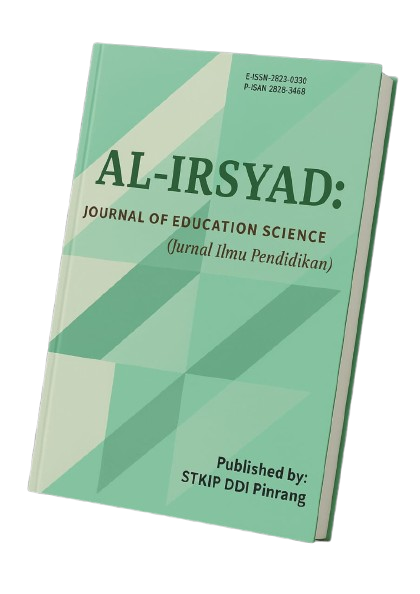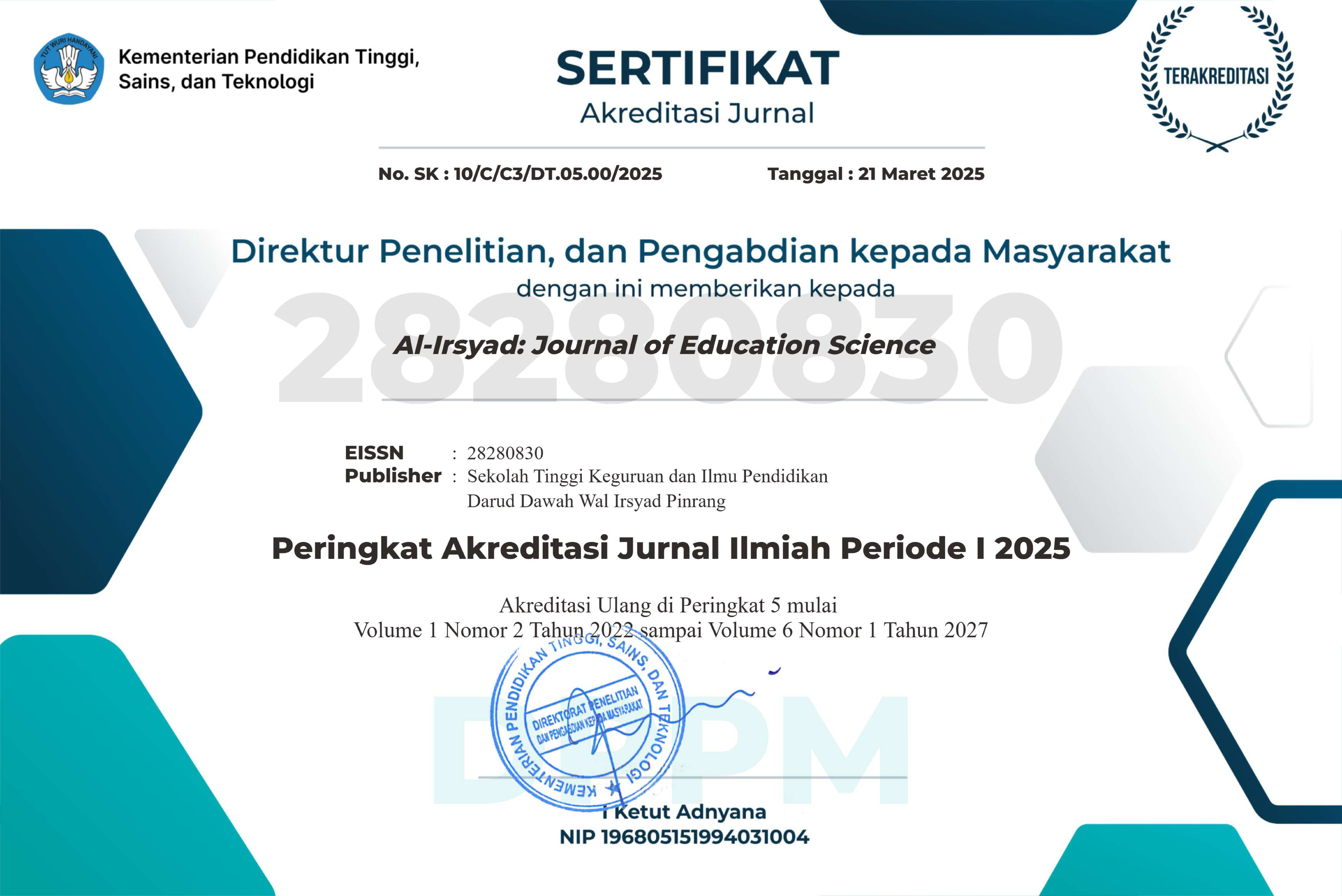GLOBALISASI PENDIDIKAN TINGGI INDONESIA: ANALISIS PROGRAM BEASISWA IISMA SEBAGAI REPRESENTASI MOBILITAS AKADEMIK INTERNASIONAL
DOI:
https://doi.org/10.58917/aijes.v4i2.220Kata Kunci:
Beasiswa Indonesia, Globalisasi Pendidikan, Mobilitas Mahasiswa InternasionalAbstrak
Artikel ini mengkaji Indonesian International Student Mobility Awards (IISMA) sebagai studi kasus untuk memahami respons pendidikan tinggi Indonesia terhadap globalisasi melalui program mobilitas mahasiswa. Penelitian ini mengisi kekosongan literatur yang selama ini lebih bersifat deskriptif dengan mengintegrasikan aspek ekonomi, politik, dan budaya secara sistematis. Metode yang digunakan adalah tinjauan pustaka kualitatif dengan pendekatan tematik, mengumpulkan literatur dari Google Scholar dan sumber resmi pemerintah dan institusi pendidikan antara tahun 2015–2024, dengan seleksi berdasarkan relevansi, kredibilitas, dan isi. Hasil analisis menunjukkan bahwa secara ekonomi, IISMA mencerminkan investasi negara dalam pendidikan global; secara politik, program ini berperan sebagai diplomasi pendidikan melalui seleksi dan regulasi kementerian; secara budaya, terdapat tantangan adaptasi lintas budaya dan reintegrasi mahasiswa. Keberhasilan IISMA bergantung pada sinergi ketiga dimensi tersebut. Artikel ini memberikan kontribusi akademik berupa kerangka analitis interdisipliner dan merekomendasikan penguatan kebijakan lintas sektor demi keberlanjutan program serupa.
Referensi
Altbach, P. (2004). Globalisation and the university: Myths and realities in an unequal world. Tertiary Education Management, 10(1), 3–25.
Carnoy, M. (2014). Globalisation, educational change, and the national state. In N. Stromquist & K. Monkman, Globalisation and education: Integration and contestation across culture (pp. 21–38). Rowman & Littlefield Publisher.
Clapham, C. (2002). The Challenge to the State in a Globalized World. Development and Change, 33(5), 775–795. https://doi.org/10.1111/1467-7660.t01-1-00248
Cortese, A. D. (2003). The Critical Role of Higher Education in Creating a Sustainable Future. Planning for Higher Education, 31(3), 15–22.
Docquier, F., Lohest, O., & Marfouk, A. (2007). Brain Drain in Developing Countries. 21(2), 193–218. https://doi.org/10.1093/wber/lhm008
Harvey, L., & Askling, B. (2003). Quality in Higher Education. In R. Begg (Ed.), The Dialogue between Higher Education Research and Practice (pp. 69–83). Springer Netherlands. https://doi.org/10.1007/978-0-306-48368-4_6
Healey, J. (2001). Globalisation. Spinney Press.
Hudson, R. (2016). Dominated by Economics? Evidence of Changing Drivers of Internationalization and Its Funding Within Higher Education Institutions in Europe. Higher Education Policy, 29(1), 1–19. https://doi.org/10.1057/hep.2015.4
Kansas State University. (n.d.). Research Guides: ENGL 417 - Written Communication for the Workplace: Grey Literature & White Papers. Retrieved November 4, 2023, from https://guides.lib.k-state.edu/c.php?g=181814&p=6804869
Lagrosen, S., Seyyed‐Hashemi, R., & Leitner, M. (2004). Examination of the dimensions of quality in higher education. Quality Assurance in Education, 12(2), 61–69. https://doi.org/10.1108/09684880410536431
Lin, T.-C. (2004). The role of higher education in economic development: An empirical study of Taiwan case. Journal of Asian Economics, 15(2), 355–371. https://doi.org/10.1016/j.asieco.2004.02.006
Madison, G. B. (1998). Globalization: Challenges and Opportunities. https://macsphere.mcmaster.ca/handle/11375/28138
Ministry of Education, Culture, Research, and Technology of Indonesia. (2023). IISMA Official Website. https://iisma.kemdikbud.go.id/
Nederveen Pieterse, J. (2015). Globalisation & culture: Global mélange. Polity Press.
Olssen, M., & Peters, M. A. (2005). Neoliberalism, higher education and the knowledge economy: From the free market to knowledge capitalism. Journal of Education Policy, 20(3), 313–345. https://doi.org/10.1080/02680930500108718
Ozga, J., & Lingard, B. (2007). Globalisation, education policy and politics. In J. Ozga & B. Lingard, The Routledge Falmer reader in education policy and politics (pp. 65–82). Routledge.
Porter, P., & Vidovich, L. (2000). Globalization and higher-education policy. Educational Theory, 50(4), 449.
Samier, E. A. (2015). The globalization of higher education as a societal and cultural security problem. Policy Futures in Education, 13(5), 683–702. https://doi.org/10.1177/1478210315579558
Scholte, J. A. (2000). Can Globality Bring a Good Society? In P. S. Aulakh & M. G. Schechter (Eds.), Rethinking Globalization(s): From Corporate Transnationalism to Local Interventions (pp. 13–31). Palgrave Macmillan UK. https://doi.org/10.1007/978-1-349-62425-6_2
Slaughter, S. (1998). National higher education policies in a global economy. In C. J & N. J, Universities and Globalisation: Critical Perspectives (pp. 45–70). Sage.
Stark, O. (2004). Rethinking the Brain Drain. World Development, 32(1), 15–22. https://doi.org/10.1016/j.worlddev.2003.06.013
Stromquist, N. (2002). The twinning of ideas and material conditions: Globalisation, neoliberalism and postmodernism. In Education in a globalized world: The connectivity of economic power, technology, and knowledge (pp. 19–35). Rowman & Littlefield Publisher.
The Times Higher Education. (2023). World University Rankings. Times Higher Education (THE). https://www.timeshighereducation.com/world-university-rankings/2024/world-ranking
The University of Sydney. (2023). Subject guides: Speech Pathology: Grey Literature. https://libguides.library.usyd.edu.au/c.php?g=508102&p=6734947
Warn, J., & Tranter, P. (2001). Measuring Quality in Higher Education: A competency approach. Quality in Higher Education, 7(3), 191–198. https://doi.org/10.1080/13538320120098078
Welch, A. (2012). Opportunistic entrepreneurialism and internationalisation of higher education: Lessons from the antipodes? Globalisation, Societies and Education, 10(3), 295–315. https://doi.org/10.1080/14767724.2012.710119
Unduhan
Diterbitkan
Cara Mengutip
Terbitan
Bagian
Lisensi
Hak Cipta (c) 2025 Ahmad abdullah zawawi, Mega Suryani, Rabiya Museyibzada

Artikel ini berlisensi Creative Commons Attribution 4.0 International License.























